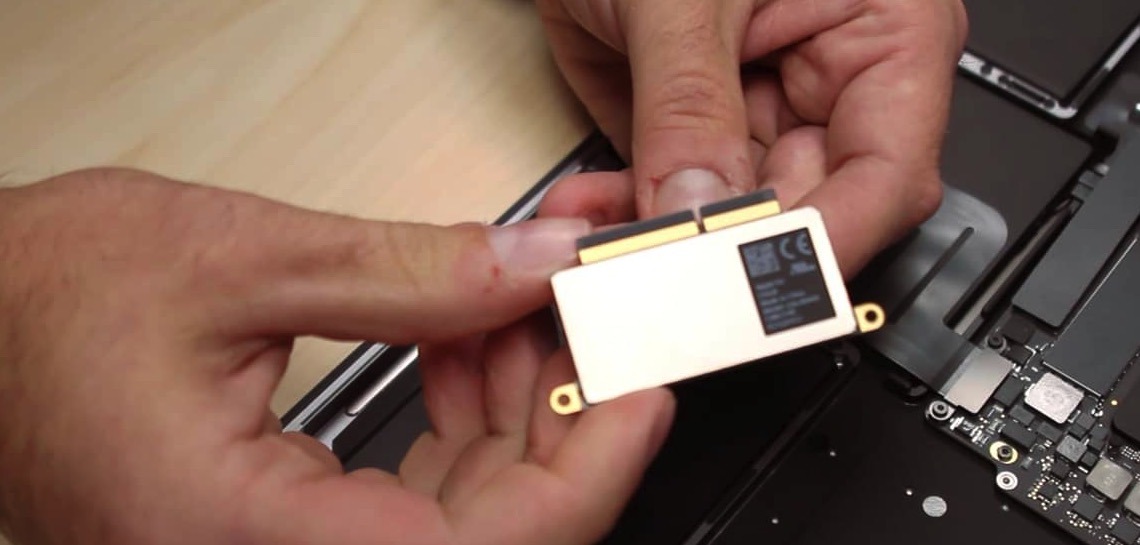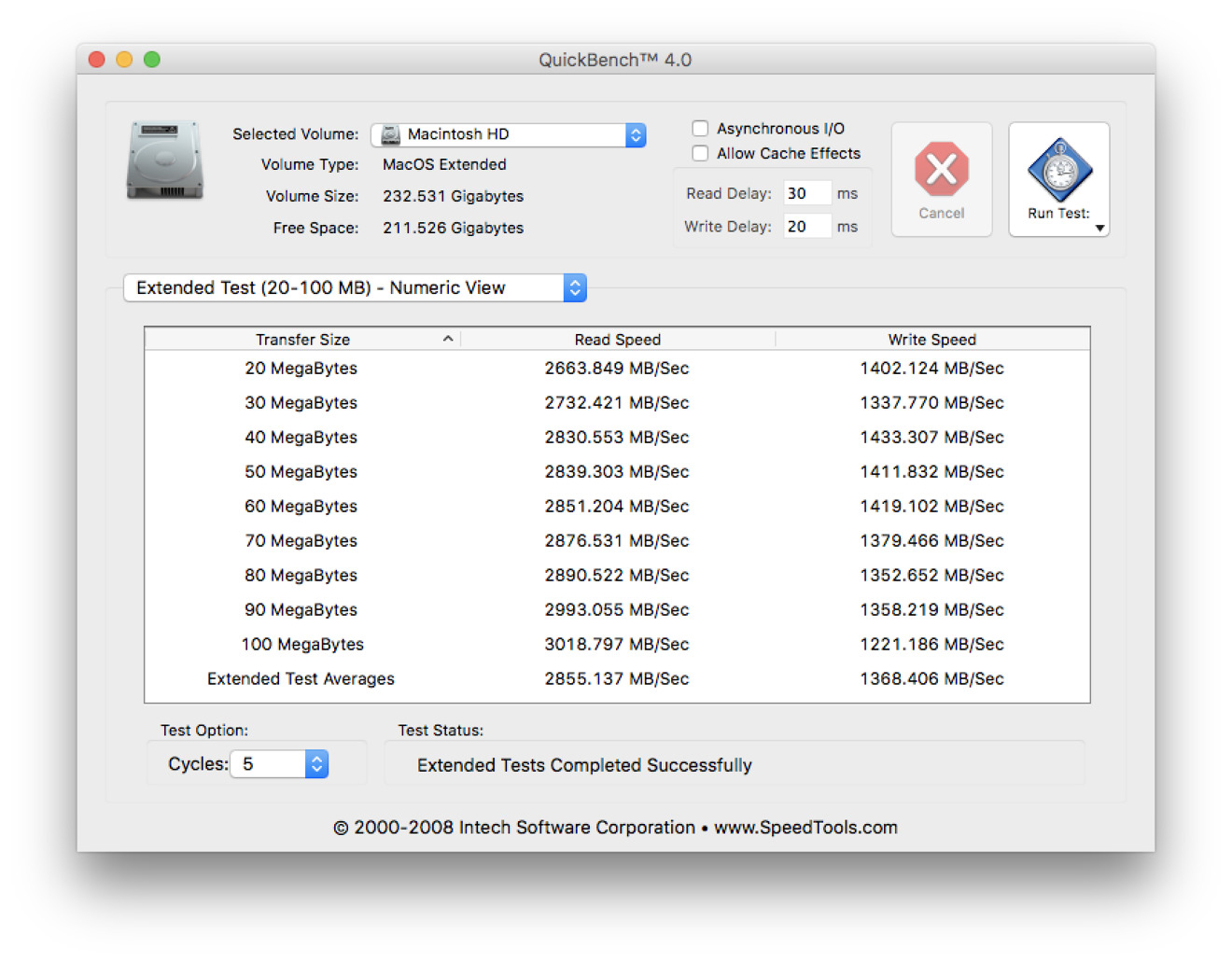Apple claims that the PCI-e SSD in the new MacBook Pro is more than twice as fast as the 2015 model, and early benchmarking of the 13-inch MacBook pro with Function Keys bear out the claim that the new portable family from Apple is the SSD speed champion.
Apple notes that the drive in either the 13- or 15-inch model of the MacBook Pro has sequential read speeds of 3.1 gigabytes per second. Write speeds are said to be 2.2 gigabytes per second on the 15-inch version, and 2.1 gigabytes per second on the 13-inch model. An OWC teardown and benchmarking session confirmed Apple's drive speed claims in the 13-inch model.
The early 2015 MacBook Pro that the new model replaced posted read speeds of 1.5 gigabytes per second, and 1.3 gigabytes per second writing to the drive.
From a practical standpoint, copying a batch of mixed files has been noted as being significantly faster than its predecessor and versus other laptops in its class, with the 13-inch MacBook Pro with function keys pulling down 508.9 megabytes per second during the transfer, and the October-released Dell XPS 13 managing 339.3 megabytes per second.
The fast SSD speeds will somewhat mitigate speed issues brought about for some users because of the RAM being limited to 16GB due to architectural limitations. Virtual memory page-outs will be relatively faster on the new SSD as compared to previous ones, further cutting back the performance hit induced by the transfer contents from very fast physical RAM to virtual space allocated on storage media.
The 2016 MacBook Pro family, announced Thursday, is a major redesign to Apple's flagship notebook, and comes in screen sizes of 13 and 15 inches, with core models starting at $1,799 and shipping in two to three weeks. AppleInsider was at the event, and was able to spend some time with all the latest hardware.
To grab the lowest prices on Apple's new MacBook Pro with Touch Bar, see AppleInsider's Mac Price Guide.
 Mike Wuerthele
Mike Wuerthele








-m.jpg)






 Charles Martin
Charles Martin
 Christine McKee
Christine McKee
 Wesley Hilliard
Wesley Hilliard
 Malcolm Owen
Malcolm Owen
 Andrew Orr
Andrew Orr
 William Gallagher
William Gallagher
 Sponsored Content
Sponsored Content







42 Comments
That's nice. I wonder how it compares in the larger scene of competitive products?
And now that SSDs have come down in price, it would be worthwhile for Apple to look at having macOS on its own super-fast drive, separately from the "user data" drive. That approach would give users an easy way to upgrade their data drive without having to fully reinstall the operating system, for example. And it would give them options to have slower (aka, cheaper) drives on entry-level and consumer-oriented devices, like the Mac mini, to keep the prices lower without impacting overall system performance and responsiveness.
Let's see this Apple.... adopt a separate super-fast "system" drive for all of your Macs.
Can anyone think of a reason why this would not work?
Can't innovate my ass.
People harping on the specs of the new MacBook Pro's have zero clue what goes on under the hood. These new machines are awesome. Going to be an early christmas for me. :)
There SSD's are fast, but there not the fastest, except maybe in Macbooks, :)
Samsung's EVO drive claims 3GB/sec transfer speeds also. Makes sense, as Samsung is probably the manufacturer of Apple's SSDs anyhow.